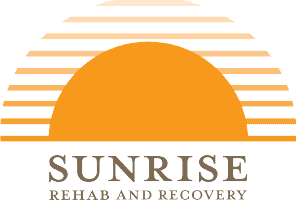Perhaps the most well-known type of addiction treatment is the 12-step recovery program model. Popularized by Alcoholics Anonymous, the 12 Steps is a recovery program that breaks addiction recovery down into distinct steps in order to help people struggling with addiction systematically work through the effects of addiction. Today, it is still the most commonly used form of addiction treatment due to its proven effectiveness in helping people to achieve sobriety.
The 12-Step Model
In a 12-step recovery program, addicts admit that they are powerless against their addiction. This surrender is a cornerstone of recovery as those battling with addiction understand that their problem has overwhelmed their sense of control, and they need help. Additionally, they realize that by relinquishing this control, they are giving their addiction over to a higher power. Though it is an act of surrender, this approach is still powerful for those struggling with addiction. They know that a higher power will give them the strength to fully understand who they are, make amends, and maintain life-long sobriety.
At its core, a 12-step recovery program operates on the belief that people with an addiction to drugs or alcohol can help each other to get sober and avoid relapse. These programs include regularly scheduled group meetings, where members are able to discuss where they are in their recovery, their experiences with sobriety, and get support for any difficulties they may be facing. It is also a place where members can celebrate achievements and milestones in their sobriety.
12-step recovery programs promote sobriety through abstinence and have been shown to help prevent relapse. In fact, the programs can reduce the risk of relapse by as much as 40 percent. They also have been shown to have a positive impact on members’ mental health, as the steps help provide much-needed structure and support.
The 12 Steps
What sets a 12-step recovery program apart from others is that people are typically members for life. The program not only guides their sobriety but allows them to sustain it long-term. The following are the 12-steps:
- Admitting that you are powerless over substances, and that they have made you unable to manage your life.
- Belief that a higher power can help you to achieve sobriety.
- Agreeing to turn your life over to that higher power.
- Taking a personal inventory of yourself and your morals.
- Admitting the wrongs you have done to yourself, others, and your higher power.
- Being ready to allow your higher power to help you change these wrongs.
- Asking your higher power to change your shortcomings.
- Making a list of the wrongs you have done to others, and being willing to ask for forgiveness.
- Contacting these people to ask for forgiveness, unless doing so would harm them in any way.
- Continuously monitoring your choices and actions for missteps, and admitting when you are wrong.
- Connecting with your higher power via prayer, meditation, or whatever works best for you.
- Carrying on the 12-step message to others in need of help.
Our Services
Giving Hope To Those In Need
A residential facility providing a recovery-oriented approach to high quality comprehensive treatment for those struggling with addiction.
